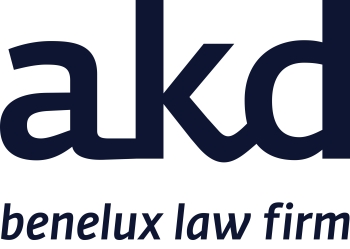Article 14 of the EU Enforcement Directive (2004/48/EC) states that "Member States shall ensure that reasonable and proportionate legal costs and other expenses incurred by the successful party shall, as a general rule, be borne by the unsuccessful party, unless equity does not allows this".
This provision has been implemented in the Netherlands by Article 1019h of the Code of Civil Procedure.
According to Consideration 17 of the EU Enforcement Directive, parties must consider the specific characteristics of each individual case. In order to provide guidelines as to what may be regarded as 'reasonable and proportionate' and allow for a better risk estimation of the potential costs at an early stage, the Dutch judiciary has used so-called 'indicative tariffs' in IP cases since 2008. The indicative tariffs were last revised in 2014, when a distinction was made in relation to, among other things, the complexity of a case, distinguishing between 'simple', 'normal' and 'complex' cases.
Notably, parties must specify their legal costs in detail. Further, the indicative tariffs do not apply in patent cases.
The indicative tariffs were recently revised, following:
- the European Court of Justice's judgment in United Video Properties regarding the interpretation of Article 14 of the EU Enforcement Directive;(1) and
- the Supreme Court's judgment that a judge must decide ex officio on the assignment of the cost of proceedings and the amount thereof – in other words, whether the claimed legal costs are reasonable and proportionate.(2)
The revised indicative tariffs apply from April 1 2017. It is expected that the courts will now be more critical in awarding legal costs, as they must consider ex officio whether the claimed legal costs are reasonable and appropriate. This has logically led to the expectation that lower legal costs will be awarded. Notably, the category of 'very simple' IP cases has been introduced, in which only the so-called 'standard liquidation' rates – which are applied in regular (non-IP) civil cases and are much lower than the indicative tariffs – will apply. A case in which a photo is used on a natural person's website without the copyright owner's permission is mentioned as an example of a very simple IP case.
A starting point for the revised tariffs is that amounts higher than the indicative tariffs will be rewarded only under special circumstances, based on the specifics of the matter. Hence, it seems that if both parties claim costs which are higher than the applicable indicative tariffs, the court will normally award only the maximum indicative tariff. It remains to be seen under what circumstances courts will award higher rewards.
A simplified overview of the revised indicative tariffs applied by the district courts, the courts of appeal and the Supreme Court is set out below.
Preliminary proceedings
|
Category |
Maximum legal costs |
|
Very simple matter |
Liquidation rate |
|
Simple matter |
€6,000 |
|
Normal matter |
€15,000 |
|
Complex matter |
€25,000 |
Substantive proceedings
|
Category |
Maximum legal costs |
|
Very simple matter |
Liquidation rate |
|
Simple matter |
€8,000 |
|
Normal matter |
€17,500 to €20,000 (depending on the number of procedural actions) |
|
Complex matter |
€35,000 to €40,000 (depending on the number of procedural actions) |
Preliminary proceedings
|
Category |
Maximum legal costs |
|
Very simple matter |
Liquidation rate |
|
Simple matter |
€6,000 |
|
Normal matter |
€15,000 |
|
Complex matter |
€25,000 |
Substantive proceedings
|
Category |
Maximum legal costs |
|
Very simple matter |
Liquidation rate |
|
Simple matter |
€8,000 |
|
Normal matter |
€20,000 |
|
Complex matter |
€40,000 |
|
Category |
Maximum legal costs |
|
Very simple matter |
Liquidation rate |
|
Simple matter |
|
|
Normal matter |
|
|
Complex matter |
|
For further information on this topic please contact Bram Woltering at AKD by telephone (+31 88 253 50 00) or email ([email protected]). The AKD website can be accessed at www.akd.nl.
Endnotes
(1) European Court of Justice, July 28 2016, C-57/15, (United Video Properties).
(2) Dutch Supreme Court, December 4 2015, ECLI:NL:HR:2015:3477 (LMR).
This article was first published by the International Law Office, a premium online legal update service for major companies and law firms worldwide. Register for a free subscription.



